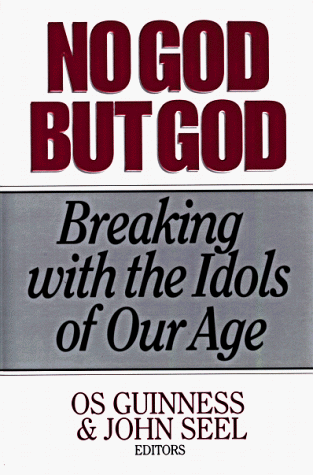
Quotes by Os Guinness
Although a Christian should believe simply, he should not “simply believe.”
Christ is the only way to God, but there are as many ways to Christ as there are people who come to Him.
Whenever evangelicals have an experience of direct, personal access to God, we are tempted to think or act as if we can dispense with doctrine, sacraments, history, and all the other “superfluous paraphernalia” of the Church and make our experience the sum and soul of our faith. We are still attracted to movements that replace thinking and theology by other emphases relational, therapeutic, charismatic, and managerial (as in church growth). Whatever the other virtues of these movements and the unquestionable importance of piety, we must courageously repudiate anti-intellectualism for the sin it is.
Whenever evangelicals have an experience of direct, personal access to God, we are tempted to think or act as if we can dispense with doctrine, sacraments, history, and all the other “superfluous paraphernalia” of the Church and make our experience the sum and soul of our faith. We are still attracted to movements that replace thinking and theology by other emphases relational, therapeutic, charismatic, and managerial (as in church growth). Whatever the other virtues of these movements and the unquestionable importance of piety, we must courageously repudiate anti-intellectualism for the sin it is.
Idolatry may not involve explicit denials of God’s existence or character. It may well come in the form of an over-attachment to something that is in itself perfectly good… An idol can be a physical object, a property, a person, an activity, a role, an institution, a hope, an image, an idea, a pleasure, a hero, anything that can substitute for God.
The Christian faith is not true because it works; it works because it is true.
If Jesus Christ is the head of the church and hence the source and goal of its entire life, true growth is only possible in obedience to Him. Conversely, if the church becomes detached from Jesus Christ and His Word, it cannot grow however active and successful it may seem to be.
Quite simply, it is a fact of history that the church of Christ has not experienced any major nationwide revival under the conditions of advanced modernity. On the other hand, modernity undercuts true dependence on God’s sovereign awakening by fostering the notion that we can effect revival by human means. On the other hand, modernity makes many people satisfied with privatized, individualistic, and subjective experiences that are pale counterfeits of true revival.
In distinct contrast to the widespread conservative fallacy of the eighties, the sharpest challenge of modernity is not secularism, but secularization. Secularism is a philosophy; secularization is a process. Whereas the philosophy is obviously hostile and touches only a few, the process is largely invisible and touches many. Being openly hostile, secularism rarely deceives Christians. Being much more subtle, secularization often deceives Christians before they are aware of it, including those in the church-growth movement. How else can one explain the comment of a Japanese businessman to a visiting Australian? “Whenever I meet a Buddhist leader, I meet a holy man. Whenever I meet a Christian leader, I meet a manager.”
Dining with the Devil: The Megachurch Movement Flirts with Modernity, Baker, 1993, p. 49.


